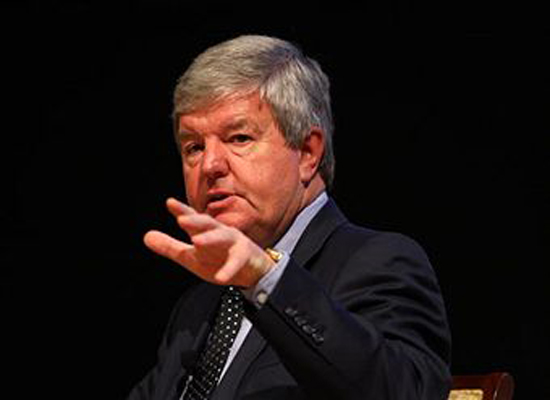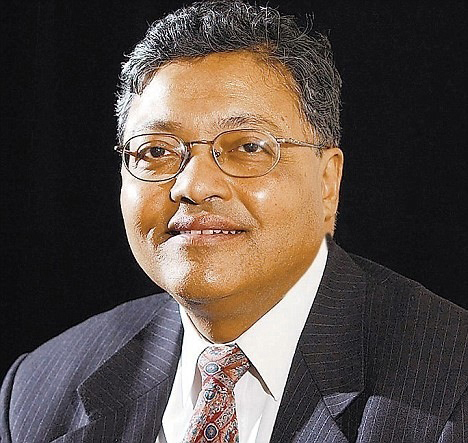Should England not win the 2018 World Cup, and that must be considered a possibility, then I suggest the starting point for the post-mortem should be a thin orange and blue FIFA booklet called the Committees Directory 2110. This lists the people who sit on the various FIFA committees.
These committees are the powerhouse of the organisation. They range from World Cup organisation, to referee administration, the technical development of the game, player status, legal issues and the many strategic, disciplinary, appeal and ethical matters that the world game constantly throws up. What emerges from this list of members is the limited influence and reach of English football.
This country may have given birth to the game. This may be the country that spawned the Premier League, the most successful league in the world, but examine this 41-page booklet listing 34 committees and you find there are only eight English names on it, seven men and one woman.
There was a ninth, Peter Kenyon, but, since he left Chelsea, Ivan Gazidis, chief executive of Arsenal, has taken on Kenyon’s committee responsibilities. Interestingly, three of the eight names are Premier League representatives, an organisation whose role in the World Cup bid has not been as prominent as it could have been.
Fair enough there is Geoff Thompson. For all that he was derided by many in the FA for being the Uncle Albert of football – the nickname coming from the character in Only Fools and Horses – he sits on the top table as a vice president, representing the British home nations on the executive and also chairs the Players Status Committee and the Associations Committees.
Now, some of you will say, what difference does it make to a World Cup bid whether Englishmen and women fill these FIFA committees, surely such thinking is nonsense. Let me tell you it matters and matters a lot.
It matters because, as everybody campaigning for the World Cup will tell you and England’s 2018 bid team make no secret of it, the race goes not to the country with the best technical marks, but to the team that best cultivates FIFA members.
Your country may tick all the technical boxes but the chances are most members of the committee will not even read the technical report. What they want to know is: do you belong to the FIFA family? Are you really part of their exclusive club?
 On any rational basis that is not how World Cup bids should be decided. But that is how it is done and we had better recognise and come to terms with it. Ask Sir Keith Mills (pictured). He played a vital role in getting London the 2012 Olympics and, as a member of the advisory board of England 2018, has been holding the hand of the bid as it has tried to recover from a series of own goals.
On any rational basis that is not how World Cup bids should be decided. But that is how it is done and we had better recognise and come to terms with it. Ask Sir Keith Mills (pictured). He played a vital role in getting London the 2012 Olympics and, as a member of the advisory board of England 2018, has been holding the hand of the bid as it has tried to recover from a series of own goals.
His answer to the charge that FIFA is not transparent and open, and its bidding process tainted: “If you’re going to enter a contest, you either accept the rules or you don’t enter. I’ve just withdrawn my team from the America’s Cup because I don’t agree with the rules – they are not going to provide a fair contest. It’s like joining a club, you have to abide by the rules and, for us to continue bidding, we have to abide by the FIFA rules. It’s their competition, they are the rights-holders. If I don’t like the rules, I don’t have to bid and that seems perfectly reasonable to me.”
And this is where the membership of the committees comes in. You do not become part of the family during the bidding process. You do that over years by getting to know, not only the 24 members who make up the executive, but the many others who sit on the various committees.
These committees which meet every few months are the lifeblood of FIFA. This is where you build up relationships and friendships, where all the lobbying goes on. Relationships started in these committees translate into votes when the big decisions like the World Cup are made by the executive.
And this is where England has always struggled when World Cup bids have been made.
Until 1970 this did not matter. Then the legendary Sir Stanley Rous, who had rewritten the football rule book, presided over FIFA and England’s dominance of FIFA was unchallenged. Then Joao Havelange suddenly, unexpectedly beat Rous for the FIFA Presidency and the English game was now taken over by the Latins. English football’s response was to go into a sulk and it has taken the game more than 20 years to recover.
One result of this sulk was that England took little interest in FIFA and allowed Harry Cavan from Northern Ireland to sit on the FIFA executive for 30 years from 1960 to 1990. Over this period, eight men sat in the Oval office of the White House, but Harry just went on. Eventually, after a reign by David Will of Scotland, Geoff Thompson did secure the post for England but it required an almighty struggle with the other home nations.
What makes this even more peculiar is this seat on the FIFA executive is reserved for the British home nations. No other country has such a privilege. England is the dominant home nation and for it not to have had the seat since the 1950s was amazing. It showed a callous neglect of this valuable position and a wretched handling of international relations by the FA.
The 2018 bid leaders to their credit have tried to address this issue but for all the airmiles travelled, years of neglect cannot be made up in a few months of hectic lobbying. And whatever happens next Thursday, even if we get an English victory, the FA must work hard to make sure that, in FIFA House and its committees, England’s voice is heard.
The hard, and often boring, hours on committees must be put in to ensure that, when it comes to the big decisions, they can be converted into votes. They are the equivalent of the hours spent on the training ground without which no player can hope to shine on the match day.
Mihir Bose is one of the world’s most astute observers on politics in sport and, particularly, football. He formerly wrote for The Sunday Times and The Daily Telegraph and until recently was the BBC’s head sports editor.
